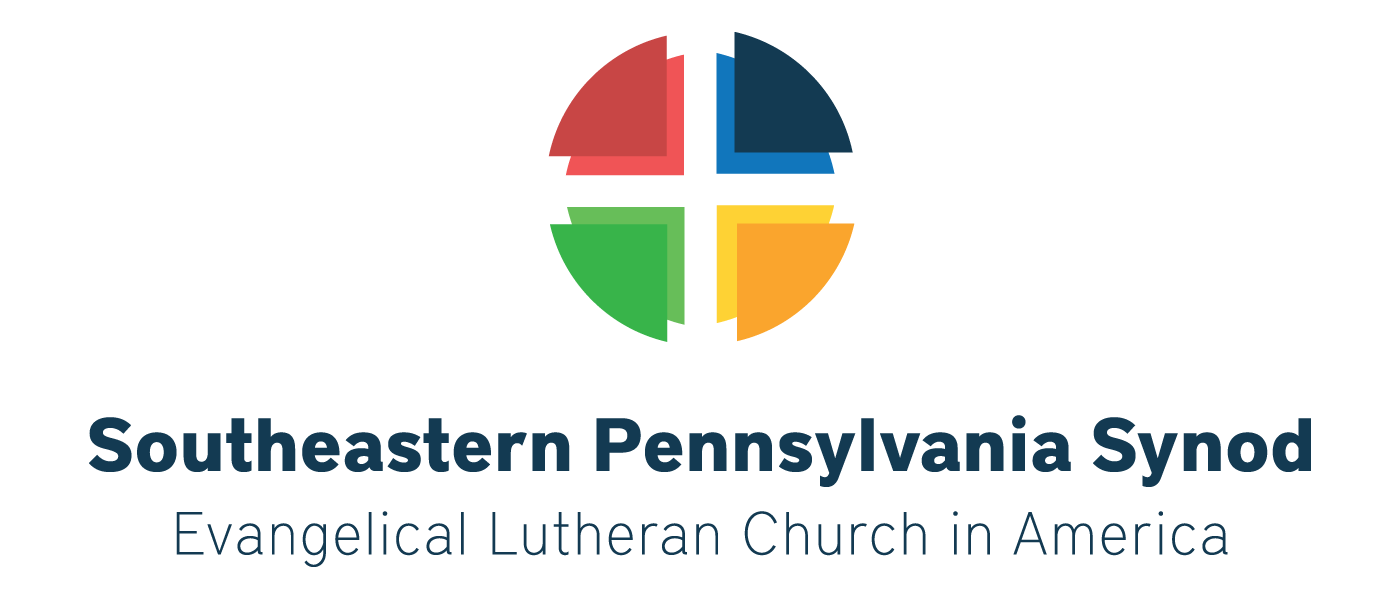May 6, 2012 in Assembly
2012 Assembly Highlights
The Church must be planted
May 05, 2012
“As baptized children of God we have a biblical mandate to be church planters,” said the Rev. Patricia Davenport, Director for Evangelical Mission for the Southeastern Pennsylvania Synod.
“Beloved, we have been commissioned to plant churches one person at a time, it is part of our DNA that ought to excite you!,” she said.
She reminded the 2012 Assembly that Ecclesia Plantanda—the church must be planted, was the motto of Henry Melchior Muhlenberg. The church must be planted in every age, including ours, just as it was in his Muhlenberg’s day.
“Must, means it’s an essential thing,” said Davenport. “It is this sense of necessity, obligatory responsibility as a synod to plant the seeds in hard places. Because this is not only what we do, but who we are because this is who God is!”
The urgent mandate to grow the church directs us to look to the hard places where, like a plant growing in the crack of a sidewalk, the church can grow. She pointed to a ministry like Living Gospel, which grew out of listening to men and women who have been incarcerated. In Pennsylvania, the return rate to prison for those who have been incarcerated is high.
“Living Gospel is hope for men and women looking for a faith foundation, unconditional love and hospitality and a sense of community,” she said.
The Synod has also started its first Korean ministry under the leadership of Pastor Jonathan Shin in conjunction with St. Peter, North Wales.
“The church must be planted in the suburbs where our brothers and sisters of other ethnicity have found home, but no place of worship that literally speaks their language,” said Davenport.
Faith Immanuel Church, East Lansdowne is a mission church for Africans who have immigrated to the United States. Hosted by Immanuel, East Lansdowne, a struggling congregation, they have brought new life into the community.
Each Sunday, the morning service is a traditional Lutheran worship service while the afternoon service is a more upbeat African contemporary service. The congregation also offers CVBN, a radio station devoted to Africans who have immigrated to the U.S.
The 2012 Assembly received Faith Immanuel Lutheran Church as the synod’s newest congregation. Invited into the Assembly hall by Davenport, the members of Faith Immanuel processed down the aisle singing, “This is the day that the Lord has made.” Assembly spontaneously members joined the singing and clapping.
“We are so grateful for this day,” said Davenport. “This is what happens when seed is planted in a refugee camp.”
Pastor Moses Suah-Dennis serves the congregation. “This is truly the Lord’s day,” he said. “This is the Lord’s doing.”
The new congregation then presented Pastor Davenport with a plaque of appreciation and gave Bishop Burkat a check in the amount of $5,000 which she indicated would go into the Fund for Mission.
“This is how we plant the church,” said Burkat upon receiving a large poster board check.
Our Missionaries in Tanzania
May 05, 2012
Reports at the 2012 Assembly of the Southeastern Pennsylvania Synod (SEPA) of the Evangelical Lutheran Church in America (ELCA) became global when Susan and Tom MacPherson appeared on May 5, live from Tanzania via Skype. The McPhersons have been serving as volunteer missionaries to the North Eastern Diocese of Tanzania, companion to SEPA, since November, 2011. Their work is centered at Irente Children’s Home in a village adjacent to Lushoto, where the diocesan office is located.
The MacPhersons were introduced by David Neale, chair of the Tanzania Companionship Team and a member of St. John’s Lutheran Church, Mayfair, Philadelphia, where the MacPhersons are also members. Neale explained that the MacPhersons had to learn Swahili before leaving for Tanzania, and that their work in Tanzania includes teaching English and planting gardens. They are changing lives, working side by side with the people at the children’s home.
After a short video about their missionary work, the MacPhersons spoke to the assembly. Tom thanked the synod for giving them the opportunity to serve in Tanzania and share the SEPA story in its companion synod. He told about the planting they had been doing – planting a farm with peppers, onions, carrots and potatoes. “It was months and hours of hard work, and nothing has yet happened. It takes time for plants to take root,” he explained. And their work is taking root in Tanzania.
Susan MacPherson’s work has focused on the children at the home, though she explained it has expanded to the women and children in the area, who have “adopted them as grandparents.” They are also busy replacing broken glass in windows, important in preventing the spread of malaria. A vehicle purchased with funds from the ELCA is used to transport patients to the hospital in Lushoto, primarily patients being treated for malaria.
The MacPhersons had been participating in the assembly by watching the live video stream available on the Internet.
“You are the ELCA”
May 04, 2012
“The ELCA is the church that shares a living, daring confidence in God’s grace” was the message The Rev. Dr. Sherman Hicks, Director for Ethnic Specific and Multicultural Ministries of the Evangelical Lutheran Church in America (ELCA), brought to the 2012 assembly of the Southeastern Pennsylvania Synod.

The Rev. Dr. Sherman Hicks assists Bishop Burkat during the morning Eucharist. (Photo: the Rev. Jesse Brown)
He presented a video hosted by the Rev. Mark Hanson, ELCA Presiding Bishop, highlighted three different examples of where the ELCA, in partnership with church members, congregations, synods, and the ELCA and its ministries and global partners are working in the world.
In one example, First English Lutheran, a congregation in Columbus, Ohio, was about to close its doors, just trying to “stretch the dollars out” to keep the church open. The congregation looked at its changing neighborhood and decided to take the risk and a leap of faith to do “what God is calling us to do” by reaching out to the community. As one of the congregation members, from the community, notes, “they need this church,” and the ELCA helped support this change.
Nobel Peace Prize recipient – and Lutheran – Leymah Gbowee and the Lutheran Church of Liberia are another example of where the ELCA – through its prayer and support of hospitals, missionaries and funds for hunger relief – helped to support the people and enable God’s work in Liberia that lead to peace in the country.
In Irving, Texas, God’s work in the Hispanic community became a young, growing congregation of Lutherans who started with 4 members and $360 to begin a church, Iglesia Luterana Santa Maria de Guadalupe, which values “learning the traditional way to be Lutheran” as the congregation learns to ‘learn, love and serve’ in its own way. As the congregation grew, it turned to the ELCA for mission support to fund the building of a church home.
All of these were possible thanks to the partnership between synods and the ELCA.
Dr. Hicks noted the ways this partnership is important to the Synod and the ELCA. Members of the Synod serve the wider church through the work of synod members on Church Council and on task forces and churchwide committees. He thanked the individuals and congregations whose mission support enabled the Synod to send over $1.2 million to the ELCA and allow its partners, agencies and global partners to fund important work in the world. Mission support from synods provides over 80% of the funding that make ELCA mission and ministry happen.
This Lutheran tradition – to join hands to do God’s work, in ways that no one person, congregation or synod can do alone – means that “you are the ELCA in those places in the video regardless of where you sit in the pew on Sunday. We in the ELCA cannot be there without you.”
This work is also in Southeastern Pennsylvania, where five churches are supported in mission development, and a new SEPA congregation, Faith-Immanuel Lutheran Church (previously known as Faith Worship Center), will be received into the ELCA during the 2012 assembly. Over $39,000 has been provided in hunger grants to help in ministry to the hungry and poor, and three SEPA congregations have received ELCA congregational renewal grants.
The church faces many challenges and opportunities in planting and maintaining what it takes to sustain the church in today’s context for ministry, noted Dr. Hicks. “God is making a difference through SEPA and the rest of the ELCA. Thank you for leading, and sharing the word of Christ. As members of the ELCA, we are freed in Christ to serve and love our neighbors. With our hands, we do God’s work to restore and reconcile communities throughout the world.”
The presiding bishop’s message to synod assemblies can be viewed online:http://youtu.be/6vWIMvUf-NI?rel=0
Other Actions
Resolutions
Lutheran Association of Christian Educators (LACE) Uplifted by Assembly
The Lutheran Association of Christian Educators (LACE), a network of people whose mission is “connecting and serving those dedicated to Christian faith formation” was recognized and uplifted by the 2012 Assembly of the Southeastern Pennsylvania Synod.
diakonia™ and Lay Theological Education Supported
The 2012 Assembly of the Southeastern Pennsylvania Synod passed a resolution of support for diakonia™ a lay theological education program which prepares Christians to fulfill their baptismal calling and for all lay theological education programs, in general.
The Assembly encouraged congregations to increase awareness of lay educations opportunities including diakonia™ and to encourage participation in them. The resolution also urged congregations to provide financial resources for members’ continuing education in the faith and to find ministry roles for diakonia™ graduates.
Through the resolution the 2012 Synod Assembly itself covenanted to support lay theological education.
Resolution to Strengthen Conferences
The 2012 Assembly directed the Synod’s Constitution Committee to review the process for the election of Deans and bring a report with recommendations to the 2013 Synod Assembly of the Southeastern Pennsylvania Synod.
The resolution also directed the Office of the Bishop, Synod Council, and the committee of Deans to formulate a plan of education for to strengthen the structure of conferences in the synod in order to increase their capacity for mission.
The resolution was originally submitted by members of the Upper Bucks Conference, the self-dubbed Koinonia conference, because they have had such a positive experience of learning and serving together. Koinonia is a Greek word meaning a deep fellowship and communion.
Assembly Encourages Sabbatical Guidelines for Rostered Leaders
A sabbatical is an opportunity for rest, renewal, and spiritual growth. Recognizing the importance of sabbaticals, the Assembly voted to direct the Synod Council to appoint a task force to develop sabbatical guidelines for rostered leaders. The task force will report back to the 2013 Synod Assembly.
Assembly Commits to Support the ELCA Malaria Campaign
The Evangelical Lutheran Church in America has set a goal to raise 15 million dollars to work directly with companion churches in Africa to prevent and treat malaria. The 2012 Assembly of the Southeastern Pennsylvania Synod committed to support this important cause through prayer, advocacy, education, and financial resources. They also directed the Synod Council to appoint a task force to develop a synod strategy to promote and support this campaign.
Elections
Churchwide Assembly:
Elected for Churchwide Assembly, Young Adult, Lay Woman: Courtney Smith
Elected for Churchwide Assembly, Youth – Man: Malcolm Davis
Elected for Churchwide Assembly, Lay Woman: Addie Butler, Jill Meuser, Jane Roper
Elected for Churchwide Assembly, Clergy: Larry Smoose, Cynthia Krommes, Jennifer Ollikainen, Sandra Brown, Gwendolyn King, Michael Carlson
Elected for Churchwide Assembly, Lay Men: Mark Goodwin, Christian Hicks, Thomas Salber, Karl Segletes
Synod Council:
Elected for Synod Council, Clergy : Regina Goodrich, Henrik Sonntag, Harold Evans
Elected for Synod Council, Lower Montgomery Conference Representative: Susan Massey
Elected for Synod Council, At Large Representative, Lay Man: Bob Hensil
Elected for Synod Council, At Large, Lay Woman: Susan Pursch

